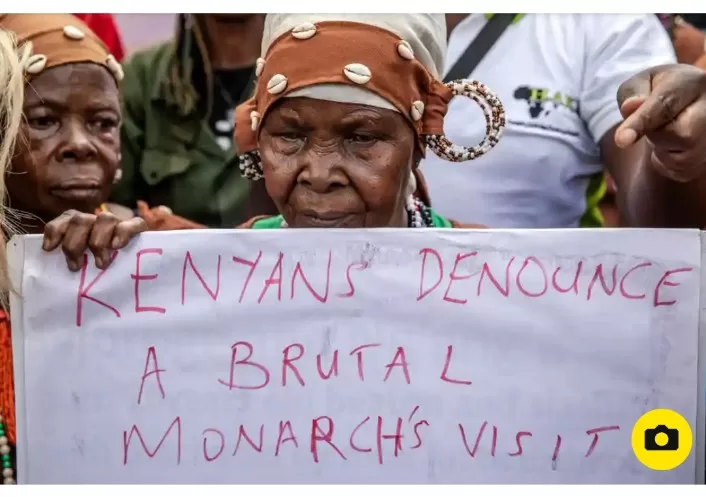Nairobi, Kenya – In the lead-up to King Charles’ much-anticipated visit to Kenya, the Kenya Human Rights Commission (KHRC) has issued a resounding call for the British monarch to make an “unequivocal public apology” for the colonial atrocities perpetrated during the Mau Mau uprising.
The KHRC demands that King Charles, representing the British government, unequivocally acknowledge and apologize for the brutal and inhuman treatment endured by Kenyan citizens during the period known as “the emergency,” which spanned from 1952 to 1960. It was during this tumultuous time, at the height of Kenya’s struggle for independence, that approximately 1.5 million Kenyans, suspected of involvement with the Mau Mau anti-colonial movement, were forcibly confined to concentration camps, where they endured torment, sexual assault, and degrading treatment at the hands of British soldiers.
The impending four-day visit, scheduled from October 31 to November 3, is expected to serve as a platform for King Charles to confront the more painful chapters of the shared history between the UK and Kenya. Buckingham Palace has released a statement indicating the King’s intention to deepen his understanding of the wrongs suffered by the Kenyan people during the emergency.
The KHRC, however, remains skeptical, asserting that there is “no indication” that the King is prepared to offer a “full and unconditional apology” for the colonial brutality that transpired in Kenya.
The horrors inflicted upon detainees were described as chillingly reminiscent of conditions witnessed in Nazi Germany or communist Russia. A letter from the British colony’s attorney general, Eric Griffith-Jones, to a British governor in 1957 openly acknowledged the distressing treatment. Griffith-Jones, significantly, later drafted legislation permitting beatings as long as they remained concealed.
It’s worth noting that in 2013, the UK reached an out-of-court settlement of £20 million with 5,228 Kenyans who were part of a class-action lawsuit regarding the abuses during the emergency. This settlement was accompanied by a “statement of regret” from the British government, following an 11-year campaign and legal battle initiated by five elderly Kenyans. The case unearthed unsettling revelations about the deliberate destruction and concealment of official records documenting the colonial authorities’ brutal crackdowns.
As the past decade has unveiled further details about the extent of colonial atrocities, there has been an upsurge in calls for acknowledgment and reparations for these historical injustices. King Charles’s approach during his inaugural visit to a Commonwealth member country will serve as a signal of how he intends to address similar calls to acknowledge and apologize for colonial atrocities.
In this era where there is no room for hiding or denying, the urgency of addressing historical wrongs is paramount. As the world grapples with the increasing impact of human-caused climate breakdown, it is imperative that we confront the past and work toward a more just and equitable future. The eyes of the world are on King Charles during this significant visit, as he navigates the delicate path of acknowledging history and paving the way for reconciliation.




